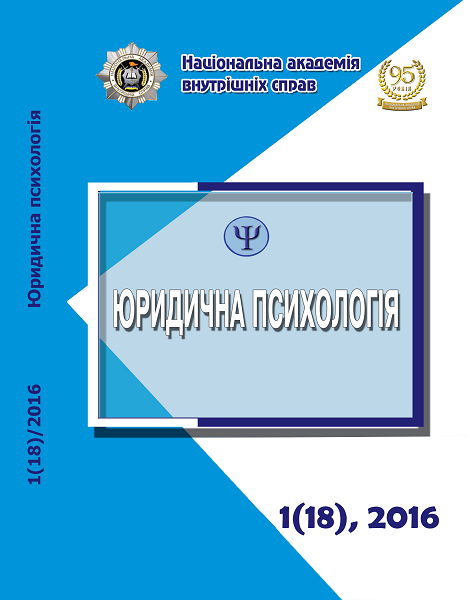Relationship Law and Morality as a Regulator of Social Relations
Keywords:
law, morality, social norms, social controls, natural law, legal positivism, deontological ethics
Abstract
The article deals with one of the urgent problems of the philosophy of law: the relationship of law and morality as a social regulator. The task of moral and legal norms is to regulate social relations, the assertion in society universal values of freedom and justice. It is alleged that law and morality are the basis of human behavior, they bring order in the interaction of people, form their model of behavior that focuses on the priority of the common good, humanity, justice, equality and other important principles and rules of human life because this is the most important means of social regulation. The process of interaction between law and morality promotes deeper rooting of moral standards in society, while increasing the authority of law, increase its role as a social regulator. Law and morality are closely interrelated and interdependent: under the influence of high moral standards and values of human rights, law is constantly being improved, on the other hand there is the reverse effect of the rights of morality, behavior and traditions of people. At the same time, due to the fact that law and morality are different forms of social consciousness, their interaction is complex and ambiguous. There is an objective necessity of adjusting both the public life in general, and social controls through their improvement and harmonization with the democratic and legal standards. Building a stable economic and political system, the formation of civil society and the rule of law requires the overcoming of all conflicts and contradictions between the law and morality, to achieve a deep and flexible interaction between them. Studying of the interrelationship of law and morality is important to optimize the processes of social control that could be an important basis for the social and spiritual revival of Ukraine.Downloads
Download data is not yet available.
Abstract views: 574 PDF Downloads: 3518
Issue
Section
Theoretical and methodological issues of legal psychology
- Authors reserve the right to authorship of their own work and transfer to the magazine the right of the first publication of this work under the terms of the Creative Commons Attribution License, which allows other persons to freely distribute published work with mandatory reference to authors of the original work and the first publication of an article in this magazine.
- Authors have the right to enter into separate additional agreements on non-exclusive dissemination of the work in the form in which it was published in the journal (for example, to post an article in the institution's repository or to publish as part of a monograph), provided that the link to the first publication of the work in this journal is maintained.
- The journal's policy allows and encourages the posting of articles by authors on the Internet (for example, in electronic storehouses of institutions or on personal websites), both before the submission of this manuscript to the editorial office and during its editorial processing, as this contributes to the creation of a productive scientific discussion and positively affects the efficiency and dynamics of citing the published work.




